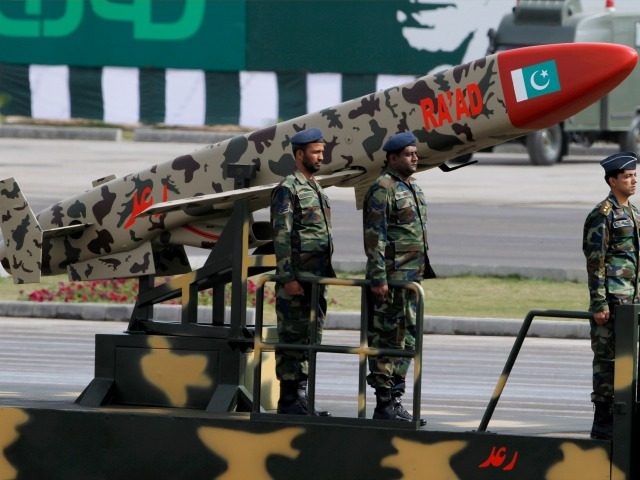Pakistan has inducted a Chinese-made advanced surface-to-air missile system into its air defense apparatus aimed at protecting against new threats, the Pakistani army revealed in a statement.
“LY-80 LOMADS [missile system] increases our response capability to current and emerging air defense threats,” Pakistani Army chief Gen. Qamar Javed Bajwa said at the system’s induction ceremony in Pakistan.
“The LY-80 is a Chinese mobile air defense system, capable of tracking and destroying a variety of aerial targets at longer ranges flying at low and medium altitude,” notes the Times of India.
This revelation comes about two months after China blasted India for allegedly “breaking” United Nations “limits on its development of nuclear weapons and long-range ballistic missile,” revealed an editorial published by the state-run Global Times.
Beijing “will not sit still if India goes too far” with “its missile fever,” warned the communist country.
Pakistan and its ally China consider India their regional rival.
According to the U.S.-China Economic and Security Review Commission, the mutual disdain between China and Pakistan towards India fuels their relationship.
“China exploits the longstanding rivalry between India and Pakistan to ensure its own ambitions in South Asia are achieved. This strategy aims to keep India so preoccupied with its western neighbor that it will not have the ability to mount a serious challenge to China’s power and influence in Asia,” reported the commission to Congress last year.
Pakistan’s induction of the Chinese-manufactured missile system marks a growing defense and strategic relationship between the nuclear-armed allies China and Pakistan.
Islamabad receives more weapons from Beijing, the world’s third-largest arms supplier in the world, than any other country.
It was China that helped Pakistan obtain its first nuclear weapon.
“China’s relationship with Pakistan has been defined by mutual animosity toward India since the early 1960s… Since then, China’s increasingly sophisticated military assistance to Pakistan — particularly on missiles and nuclear weapons—has been instrumental to Pakistan’s ability to credibly threaten India’s security,” notes the commission.
In justifying its possession of the missile-defense system, Pakistan claims all it wants is to have the means of deterring an attack or any form of aggression.
“Pakistan seeks peace and strategic stability in South Asia as cornerstone of its policy and considers conflict resolution as a mean to achieve this end,” reports Pakistan Today. “The strategists are of the view that attitude and designs of Pakistan’s enemies have become obnoxious in the wake of conspicuous improvement in the law and order situation, economy and commendable success of the armed forces in wiping out terror and terrorists.”
After a meeting between top officials in Islamabad earlier this year, Pakistan reaffirmed its close relationship with China.
China, in response, noted that Beijing “attaches great importance to its relations with Pakistan and supports its sovereignty, independence, and territorial integrity,” reported Dawn.
Reports have surfaced that India plans to ramp up its military presence along its border with Pakistan.
Moreover, China has denounced India allegedly “breaking” United Nations “limits on its development of nuclear weapons and long-range ballistic missile,” according to an editorial published by the state-run Global Times.
Beijing “will not sit still if India goes too far” with “its missile fever,” warned the communist country. Tensions between Indian and Pakistan have been intensifying in Muslim-majority conflict. China has largely stayed out of the confrontations between India and Pakistan in the region, although all three countries have competing claims to Kashmir.
Although China is not directly involved, it is likely Pakistan is receiving weapons from the communist country.

COMMENTS
Please let us know if you're having issues with commenting.